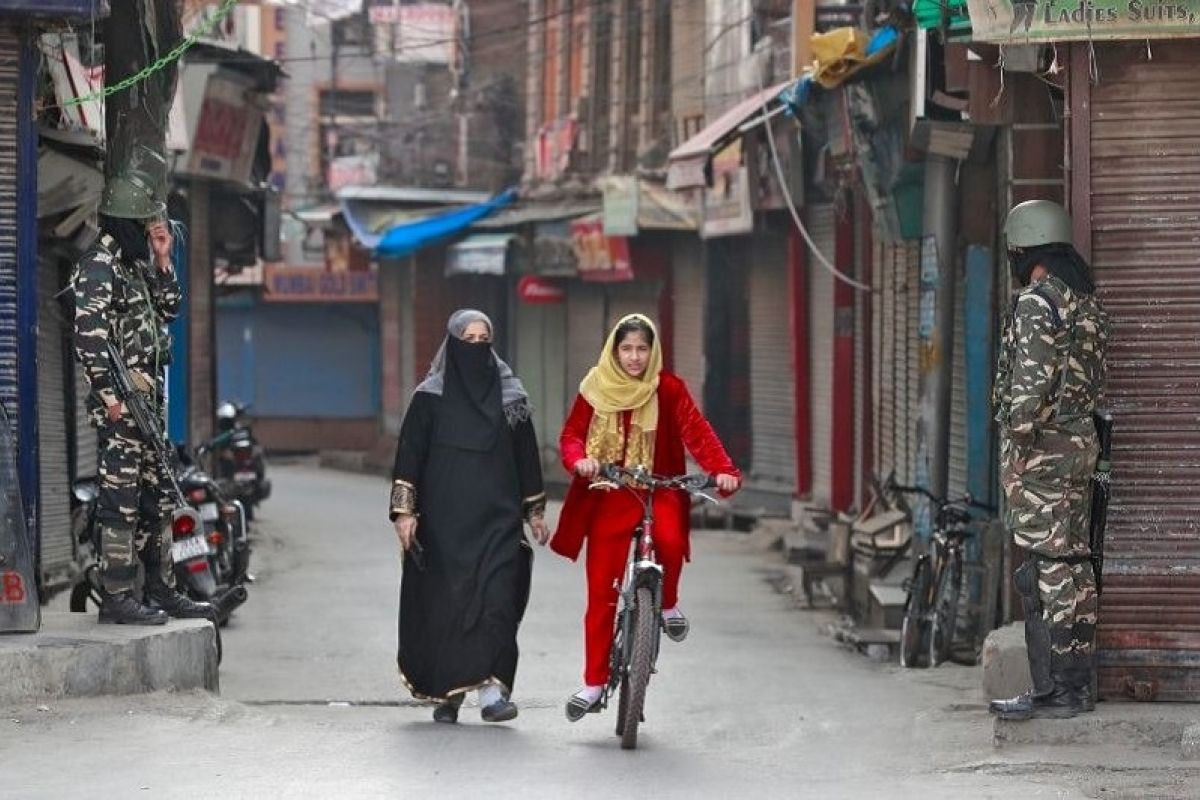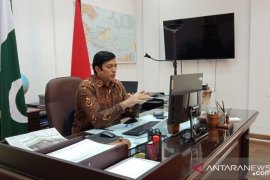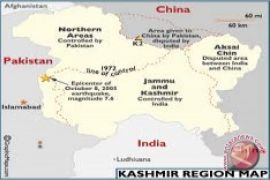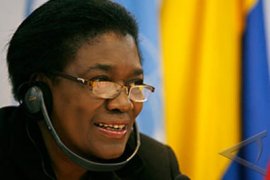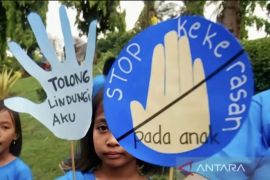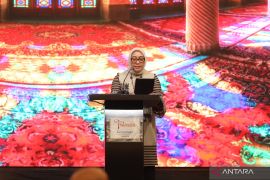Countless gardens with terraced lawns, cascading fountains, and flowerbeds with rare flowers can be found in Jammu and Kashmir.
However, Kashmir’s beauty has been marred by bloodshed and suffering due to the struggle for control of its territory.
Annually, the government and people of Pakistan—at home and abroad—observe Kashmir Solidarity Day on February 5 to mark their continued support for the Kashmiri people and their struggle for the right of self-determination.
Pakistan, as a country with a Muslim majority, has continued to voice support at bilateral, multilateral, and international forums for efforts to find solutions to resolve the long-standing problem.
According to director general of the Institute of Strategic Studies, Islamabad, Aizaz Ahmad, every year on February 5, the Pakistani nation reaffirms its solidarity with the people of Jammu and Kashmir. Politicians address gatherings. Kashmiris make a chain of human hands on Kohala bridge. Think tanks hold seminars.
Like a ritual, Pakistanis have been commemorating this day every year since 1990, when an indigenous wave of resistance surged against the Indian occupation of Kashmir.
Pakistanis have been steadfast in extending their support to the Kashmiris. And why not? The people of Pakistan and the people of Jammu and Kashmir share centuries-old ethnic, linguistic, and religious bonds.
So, over the past 33 years, the message of solidarity to the Kashmiris from Pakistanis has been loud and clear: Pakistan stands with Kashmiris.
Beyond the message, however, we also need to look into the impact that this message of solidarity has created on India and the international community, he said.
What is crystal clear to the Indian leadership is that Pakistan is not leaving Kashmiris in the lurch, and that if India wishes to see peaceful and friendly relations with Pakistan, it must resolve the Kashmir dispute in accordance with UN resolutions and the wishes of the Kashmiri people.
Is the message enough for India to change its approach toward the Kashmir dispute? Probably not, he said.
India seems to have chosen the path of finding a military solution to the Kashmir problem. This would be a fatal mistake.
The US made a judgment error in continuing to fight for a military victory in Afghanistan, but learned after immense loss of life and treasure that political solutions are far more superior and cost-effective.
The August 2019 Kashmir debacle could prove costly for India. Will India learn from the Afghanistan experience and try to go for a peaceful resolution of the Kashmir dispute? Again, not likely. The Modi regime is neither listening to the voices of Kashmiris, nor to voices from within India.
Many of the same voices have called upon India to shun the path of military oppression against the people of Kashmir, roll back the assault on their identity (Kashmiriat), and engage with Pakistan for a peaceful resolution of the dispute.
As for the international community, he said, it is encouraging that serious concerns have been raised by the UN and legislators from the US, the UK, and other countries on the heavy-handed approach being pursued by the Modi regime in occupied Kashmir.
The UN has published damning reports on gross human rights violations in Indian-occupied Kashmir, he added.
On August 5, 2019, India revoked Article 370 and Article 35A of the Indian Constitution, ending Kashmir’s special status and dividing it into two union territories.
It is not clear why India chose to assault the very identity of Kashmiris and also engage in demographic engineering when it knew that this would evoke across-the-board resistance on the part of Kashmiris.
It is also not clear how the Modi government will extricate itself from the messy situation that it has brought upon itself. There are many questions, but few answers, he said.
Meanwhile, the security and humanitarian situation in occupied Kashmir remains grim. With nearly 900 thousand troops stationed in the Valley, prolonged curfews, a blackout of communications, and in the midst of COVID-19, the “paradise on earth” has become a living hell for most Kashmiris.
The Modi government did try to entice some pro-India Kashmiri leaders, the so-called Gupkar alliance, to accept the new situation. The initiative did not result in a solution because there was not a single Kashmiri of any political shade that was ready to accept such a blatant assault on the very identity of Kashmir.
He said that the Pakistani leadership has made it clear that there will be no dialogue with the Indian government until autonomy is returned and steps are taken to resolve the Kashmir dispute.
Meanwhile, the Islamic Human Rights Commission (IHRC) has expressed deep concern over UN rights experts’ findings on the revocation of the special status of Kashmir and demographic changes in the region.
In a joint statement, Fernand de Varennes, the UN Special Rapporteur on minority issues, and Ahmed Shaheed, the UN Special Rapporteur on freedom of religion or belief, expressed concern that the loss of autonomy in Indian-administered Jammu and Kashmir violates Muslim minorities’ rights.
“The loss of autonomy and the imposition of direct rule by the Government in New Delhi suggests the people of Jammu and Kashmir no longer have their own government and have lost power to legislate or amend laws in the region to ensure the protection of their rights as minorities,” according to their statement.
Under Prime Minister Modi’s government, India has been implementing ultra-nationalist policies that have significantly curtailed the rights of Kashmiri Muslims
The last straw has been India’s decision to revoke the special status granted under Article 370 of the Indian Constitution.
According to the two top experts on minorities and freedom of religion, the revocation of the special status and subsequent efforts of the Indian government to change the demographics of the region has been a source of grave concern.
Under a new law, Indian authorities have started issuing “domicile certificates” to Indians and non-residents, permitting them residency rights and government jobs.
Muslim Kashmiris consider the new policy as the beginning of settler colonialism aimed at engineering a demographic change in Jammu and Kashmir.
These legislative changes may have the potential to pave the way for people from outside the former state of Jammu and Kashmir to settle in the region, alter the demographics of the region, and undermine the minorities’ ability to exercise their human rights effectively, according to the two UN rapporteurs.
In addition, the General Secretariat of the Organization of Islamic Cooperation (OIC) has reiterated its full solidarity with the people of Jammu and Kashmir in their quest for the right to self-determination.
The General Secretariat, pursuant to the decisions and resolutions of the Islamic Summit and the OIC Council of Foreign Ministers, has urged India to halt and reverse the illegal and unilateral actions taken on August 5, 2019, and subsequent steps to change the internationally recognized disputed status of the territory and to alter the demographic structure of the occupied territory.
In the statement issued by the OIC, the General Secretariat has demanded respect for the basic human rights of the inhabitants of Jammu and Kashmir.
The General Secretariat has also reiterated its call on the international community to step up efforts to resolve the issue of Jammu and Kashmir in accordance with the relevant UN Security Council resolutions.
Overall, the best way for Kashmir to gain freedom is through the implementation of UN resolutions.
Kashmiri people should be given the right to decide their own future. Let them decide whether they want to join Pakistan or be an independent state.
Related news: Syed Ali Gilani becomes symbol of valor: Activist
Related news: Jammu and Kashmir recognized UNSC dispute: researcher
Editor: Rahmad Nasution
Copyright © ANTARA 2023
